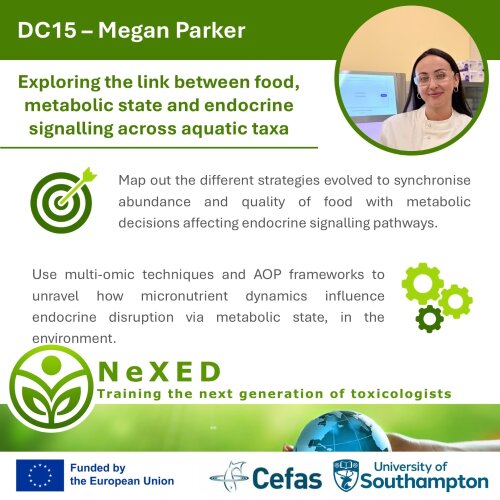The objectives of this project are to:
- Map out the different strategies life evolved to synchronise abundance and quality of food with key metabolic decisions as regulated by the wider (including paracrine and neuroendocrine) endocrine signalling pathways,
- Assess the risk of animal phyla in this context as many chemicals, natural and synthetic can interfere with these signalling pathways,
- Better anticipate environmental endocrine disruption in wildlife under a changing regime (climate and food availability).
Focus here will be on micronutrients that animals cannot synthesise and as such rely on bacteria and algae to acquire and to incorporate this knowledge in a framework that is useful for the risk assessment of chemicals via the development of Adverse Outcome Pathways (AOPs) and Integrated Approaches for Testing and Assessment (IATAs). The expected results include a direct contribution to AOP and IATA development highlighting similarities and differences across animal taxa, the creation of new knowledge on systems thinking in the area of phylo-toxicogenomics, and new information to anticipate and manage environmental pollution under a climate change scenario to better protect wildlife, ultimately halting biodiversity loss.
- Host Institution: Centre for Environment, Fisheries and Aquaculture Science, UK
- Lead Supervisor: Ioanna Katsiadaki, Cefas Weymouth Laboratory
- Subject area: Primary producers, Micronutrients, Metabolic state, Endocrine signalling
